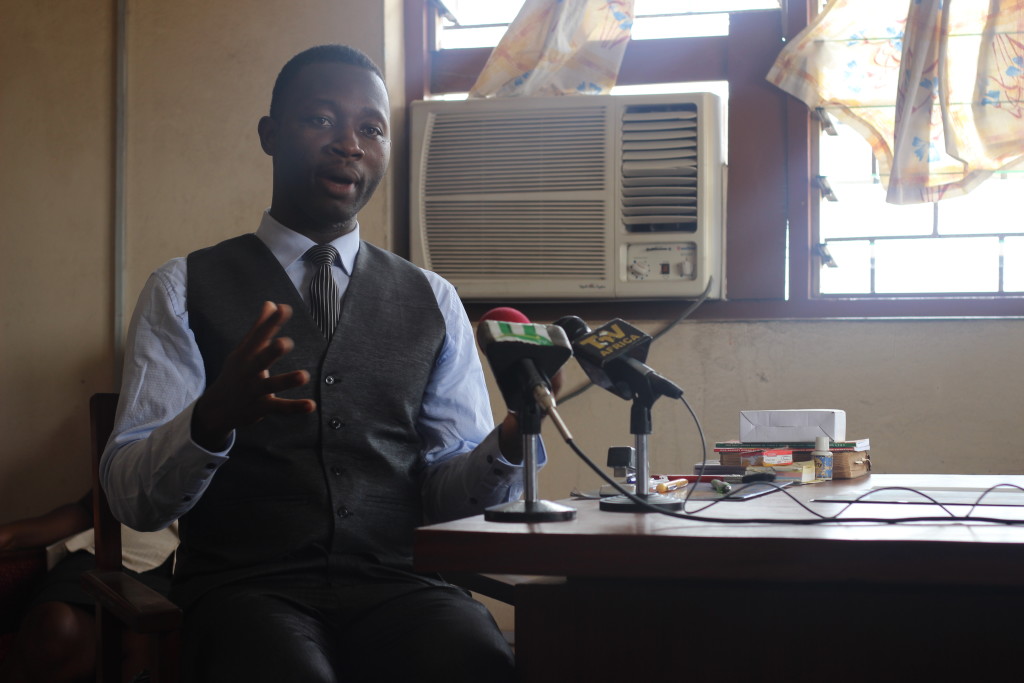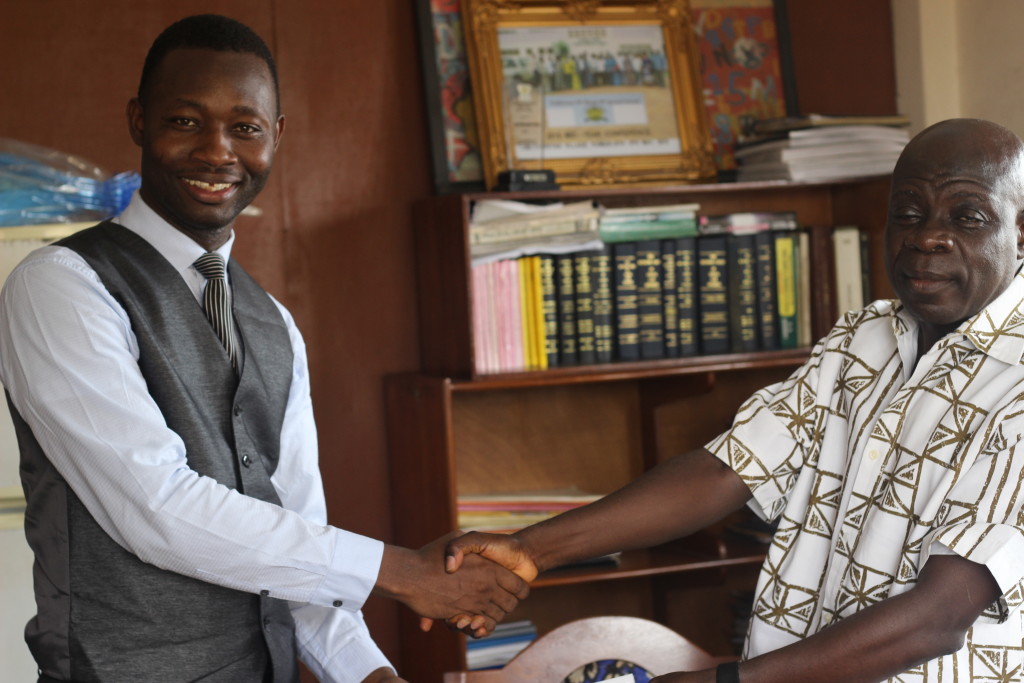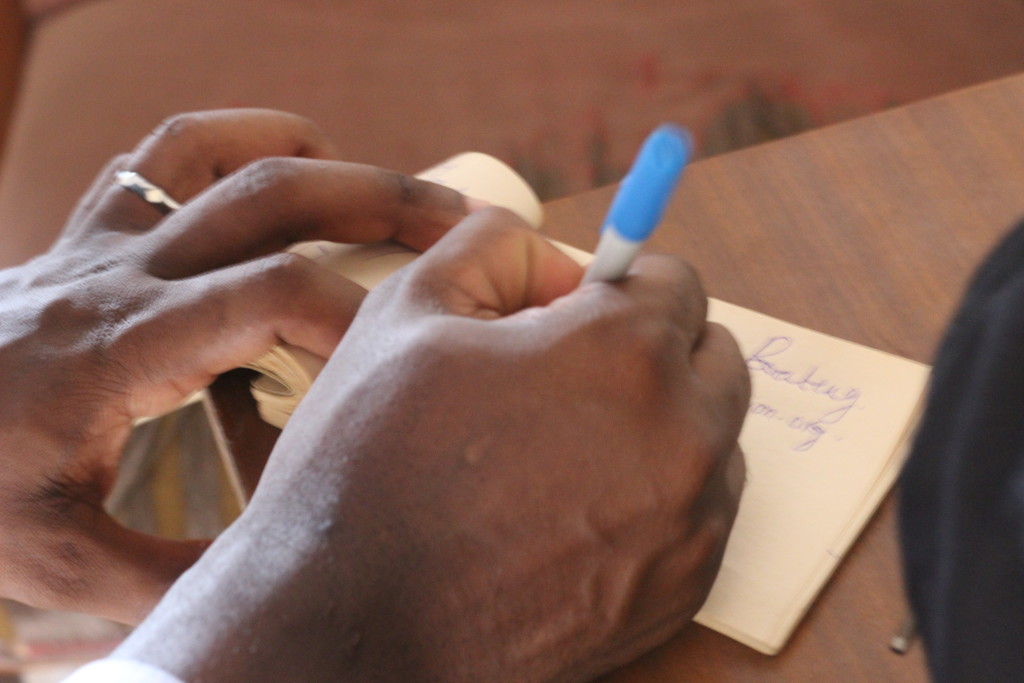AYELE FOUNDATION SIGNS AGREEMENT WITH MINISTRY OF EDUCATION
The Special Education Division of the Ghana Education Service (GES) has been called on to adapt and maintain a standard dictionary to aid the Deaf community and the citizens of Ghana in communication. The president of Ayele Foundation, Mr. Obeng Boateng, presented the Ghanaian Sign language Dictionary, which the foundation had developed, to the Special Education Division of GES in Accra.
According to Mr. Obeng Boateng, this would diminish communication barriers among Deaf individuals and enable effective communication between people from all backgrounds. He said that research conducted by Ayele, together with experts in sign language across the country, revealed that the use of the language differs from region to region and has no uniformity. Sign language is different and tied to the culture of a country, and Ghana has adapted ASL in many instances. Mr. Obeng Boateng further stressed that the prototype of the dictionary has all words organized by letter and would enable families and people who want to study GSL to do so and communicate effectively. “This would create employment for the deaf and enable institutional representation of people living with the condition in all sectors of the country,” he said.
He called on governments for assistance, both with private sectors and with NGOs including his own, in order to implement policies to help those
living with disability. There are many difficulties faced by those with disabilities, including technological and infrastructural roadblocks. One example is that it is very difficult to teach mathematics to those who are hearing impaired. A Sign Language dictionary was created to help create a standard for the ten regions of Ghana to use to communicate. Ayele Foundation plans to provide funding for the cost of the dictionary production including the per diem of signers, facility and electronic costs.
Anthony Boateng, Director of the Special Education Division (GES), said that there would be a need to “create a basis for stakeholder consultation for standards since there are different signs across the regions”. He stated that the dictionary could be used and adapted to reach a broader audience and that it could do a lot of good for the entire country.
Nathan Pecku, Head of Unit for the Deaf and Hard Hearing, GES said the dictionary would “bring relief to parents with children living with the condition to learn and communicate better instead of discriminating against them and would also enable communication among students living with the condition to communicate when they meet at inter schools programs and improve their academic work”.



Hello! My name is Megan Ziolkowski, and I went to Ghana for the summer of 2013. While I was there I had the opportunity to teach at a school for the deaf. I loved teaching in Ghana. I especially loved using sign language, and being able to communicate with such amazing people. The people in…
One of the most essential parts of the mission of the Ayele Foundation is to build schools. That has been the goal from the beginning: to create safe buildings where children can focus on learning, rather than on the integrity of their buildings. The following photograph depicts a building similar to the type of structures…
It’s easy for most people in Western countries to conjure up images of impoverished African children. And it may be easy as well to think of celebrities standing in front of schools that they have sponsored. What lies in between these images is a cycle of poverty and illiteracy that is generations old. In…
Joining Ayele in its mission can take on many different forms, from fundraising and donations to study abroad opportunities. Each phase of our mission involves people just like you– passionate about helping students in rural Ghana develop skills for the future. Your gift to the Ayele Foundation has the capacity to create change and bless…
Ayele will be opening a store featuring hand crafted goods from Africa. Here is a sneak preview into a few of those goods.
Our mission to build schools is just the beginning. Developing new educational curriculums, building sustainable structures, attracting passionate educators, and bringing technology to rural Ghana has the ability to change the lives of countless children. There are a lot of organizations committed to building schools in rural Africa. We want to take that one step…
So many children in rural Ghana lack basic education. But we know that the children of Ghana deserve so much more–not just access to a school building, but an environment where they can be challenged by passionate educators. More than half of all children in rural Ghana who enroll in school end up leaving school…



